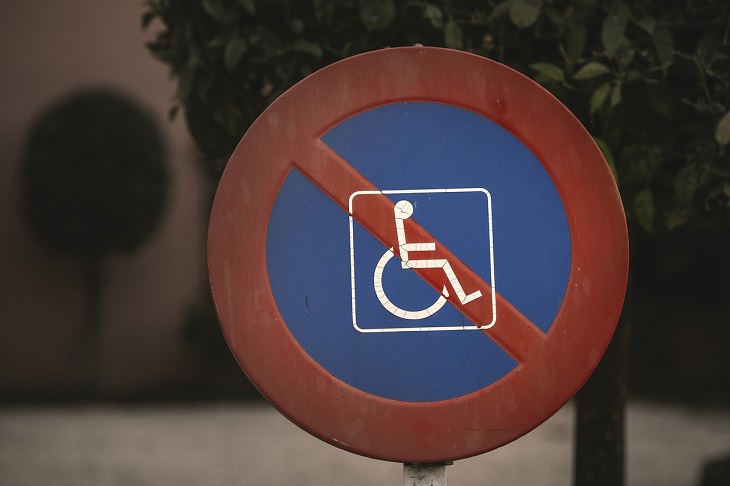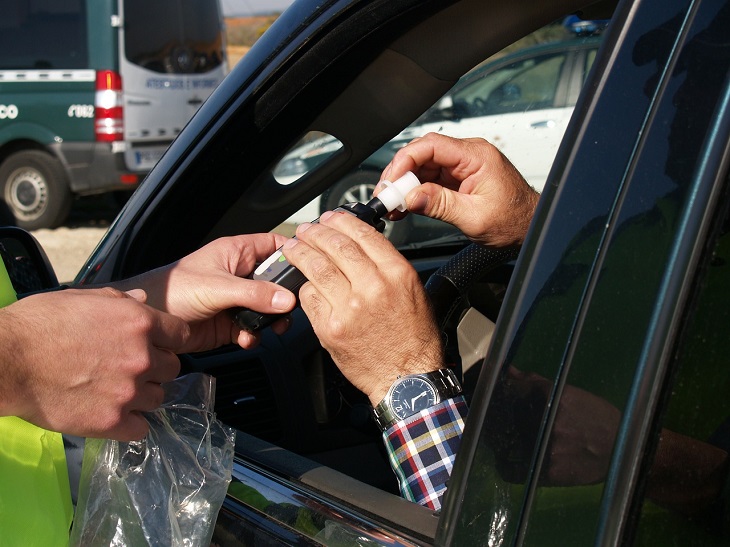Let’s take a look at the process of getting a disabled parking permit in San Antonio, Texas. Below we’ll answer all your questions, including: Is disabled parking free in San Antonio? What types of handicap parking permits are available in San Antonio? How do you get a handicap parking permit in San Antonio? What are the qualifying conditions for a handicap permit in San Antonio? And how do you renew a handicap permit in San Antonio?
Who Issues Disabled Parking Permits In San Antonio?
Disabled parking permits in San Antonio are issued by the Texas Department of Motor Vehicles. Applications for disabled parking permits or license plates in the city should be submitted to a local county tax collector’s office.
Disabled Parking Rules In San Antonio
San Antonio disabled parking permit holders are entitled to park in any designated disabled space in the city. Disabled spaces are marked with signposts that show the International Symbol of Access. Permit holders are also entitled to park in on-street, metered parking spaces for an unlimited amount of time.

Is Disabled Parking Free In San Antonio?
Parking is free for disabled permit-holders in San Antonio, both in designated disabled spaces and at metered, on-street spaces.
What Is The Fine For Illegally Parking In A Handicap Spot In San Antonio?
The fines for parking illegally in a disabled parking space in San Antonio range from $500 to $750.
What Types Of Handicap Parking Permits Are Available In San Antonio?
The following handicap parking permits are available in San Antonio:
- Permanent handicap parking placards (blue)
- Temporary handicap parking placards (red)
- Permanent handicap parking license plates
- Disabled Veterans license plates
- Institutional handicap parking placard (for institutions and organizations that transport people with disabilities)
How To Get Your Handicap Parking Permit In San Antonio
To get a handicap parking permit in San Antonio, first head to the Dr. Handicap online clinic and have a video consultation with a medical professional.
They will verify your disability and sign the relevant section of a Texas DMV disabled parking permit application form. You can then complete the form and submit it to your local tax collector’s office.
What Are The Qualifying Conditions For A Handicap Parking Permit In San Antonio?
The qualifying conditions for a handicap parking permit in San Antonio are:
- An inability to walk 200 feet without needing to stop to rest.
- An inability to walk without the use of or assistance from an assistance device, including a brace, cane, crutch, wheelchair, another person, or a prosthetic device.
- Lung disease
- A cardiac condition classified in severity as Class III or Class IV according to the American Heart Association.
- A severely limited ability to walk because of an arthritic, neurological, or orthopedic condition.
- The use of portable oxygen.
- A foot disorder that limits or impairs a person’s ability to walk.
- Another debilitating condition that, in the opinion of a qualifying physician, limits or impairs a person’s ability to walk.
- Visual acuity of 20/200 or less in the better eye with correcting lenses.
- Visual acuity of more than 20/200 but with a limited field of vision in which the widest diameter of the visual field subtends an angle of 20 degrees or less.
Who Can Verify An Application For A Disabled Permit In San Antonio?
The following medical professionals can verify an application for a disabled permit in San Antonio:
- Physician
- Physician’s assistant
- Advanced practice nurse
- Podiatrist
- Optometrist
The medical professional must also meet one of the following conditions:
- They are licensed in Texas, Arkansas, Louisiana, New Mexico, or Oklahoma
- They practice medicine in a U.S. military installation based in Texas
- They practice medicine in a hospital or health facility of the U.S. Department of Veterans Affairs
How Much Does A Handicap Placard Cost In San Antonio?
Permanent placards are free in San Antonio and Temporary placards cost $5.

How Long Are Handicap Parking Permits Valid In San Antonio?
Permanent disabled parking permits and institutional permits are valid for four years, and temporary disabled parking placards are valid for six months.
How Do You Renew A Handicap Parking Permit In San Antonio?
You renew your disabled permit in San Antonio by submitting a new application form to your local tax collector’s office. If you are applying to renew your permanent permit you do not need a new physician’s signature, but if you are applying for a new temporary permit, you do.
Where Can You Use A San Antonio Handicap Parking Permit?
You can use a San Antonio handicap parking permit in the following jurisdictions:
- All US states and overseas territories
- Canada
- Mexico
- EU
- UK
- Australia
- New Zealand
- Japan
Featured image by Chandra Maharzan on Unsplash







